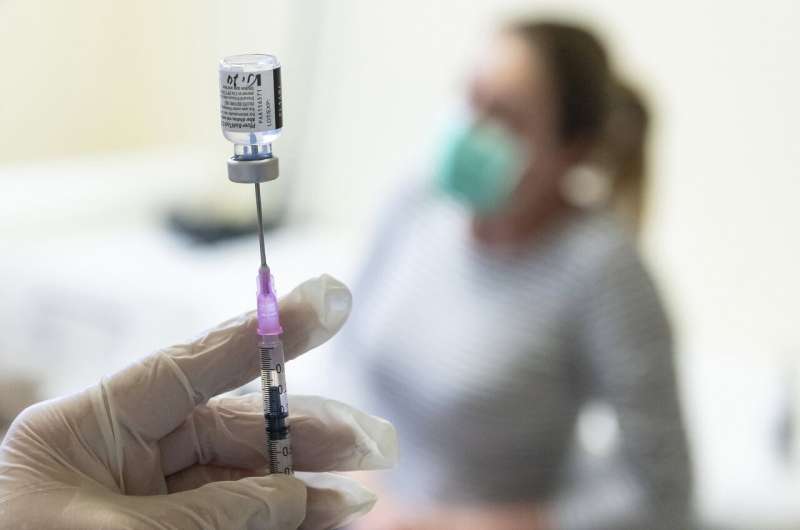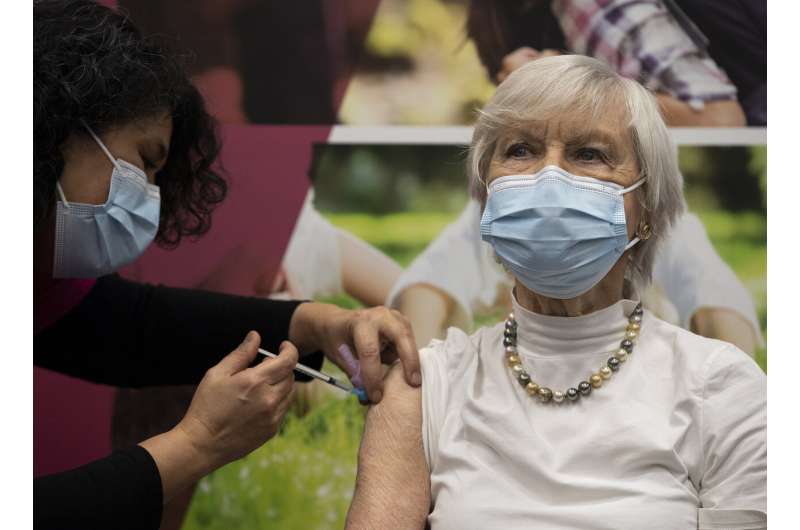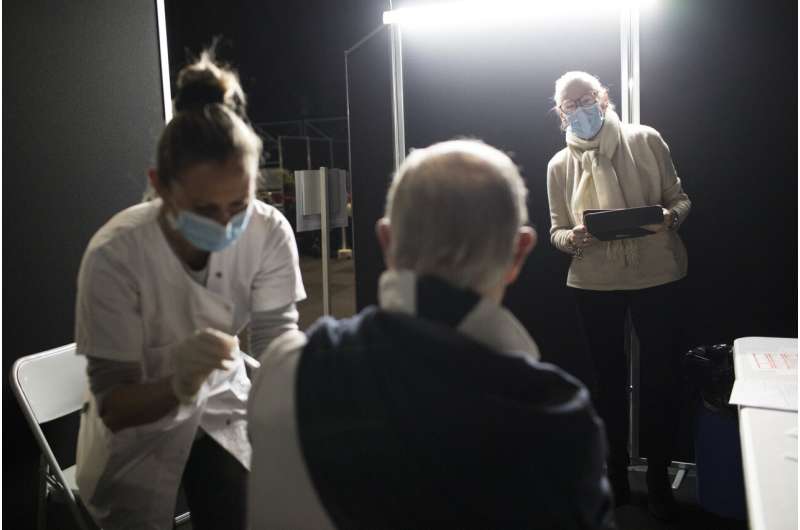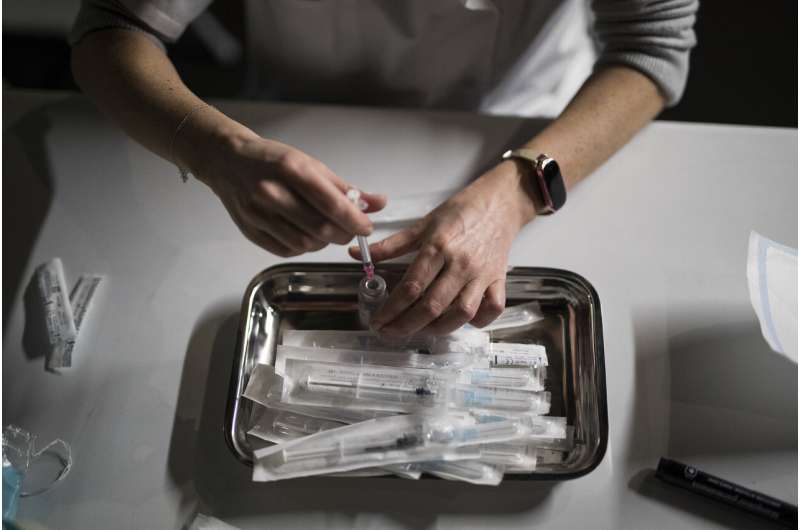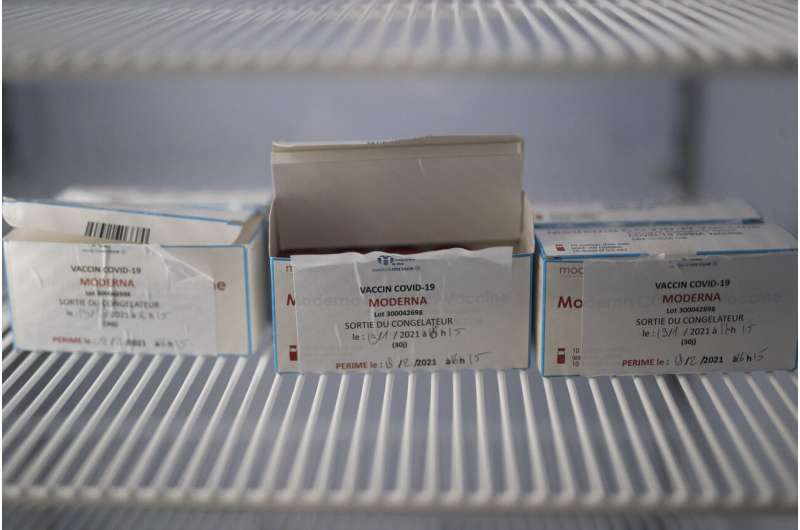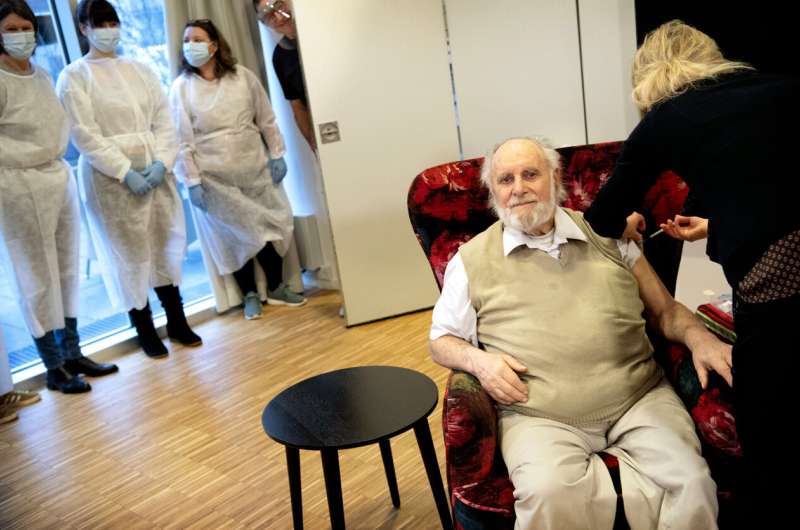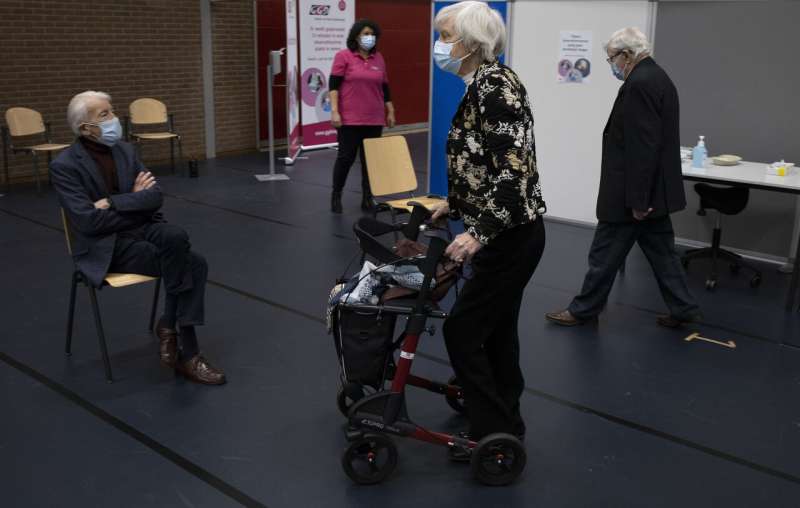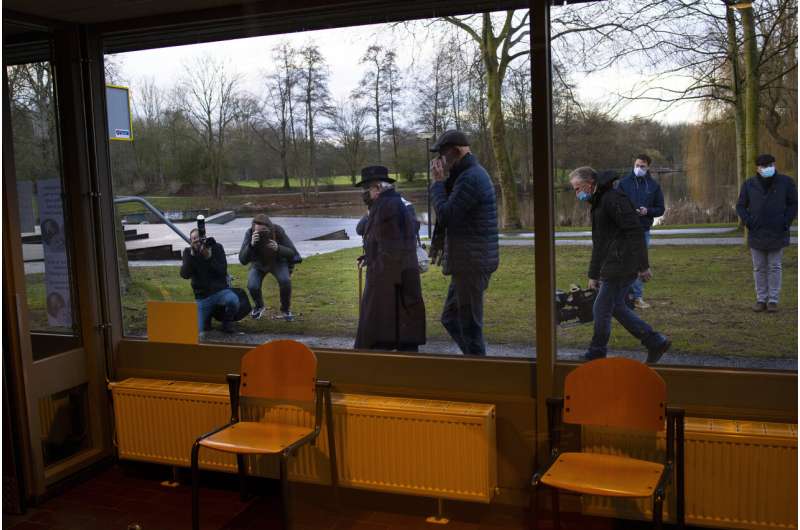A nurse prepares a dose of Pfizer-BioNTech vaccine against the new coronavirus to be injected at the Andras Josa Teaching Hospital in Nyiregyhaza, Hungary, Sunday, Jan. 24, 2021. (Attila Balazs/MTI via AP)
The European Union on Tuesday warned pharmaceutical giants that develop coronavirus vaccines to honor their contractual obligations after slow deliveries of shots from two companies hampered the bloc's vaunted vaccine rollout in several nations.
The bloc already lashed out Monday at pharmaceutical company AstraZeneca, accusing it of failing to guarantee the delivery of coronavirus vaccines without a valid explanation. It also had expressed displeasure over vaccine delivery delays from Pfizer-BioNTech last week.
"Europe invested billions to help develop the world's first COVID-19 vaccines. To create a truly global common good," EU Commission President Ursula von der Leyen told the World Economic Forum's virtual event in Switzerland . "And now, the companies must deliver. They must honor their obligations."
The statement Tuesday highlighted the level of distrust that has grown between the 27-nation bloc and pharmaceutical companies over the past week. On Monday, the EU threatened to impose strict export controls on all coronavirus vaccines produced in the bloc to make sure that companies honor their commitments to the EU.
The EU said it provided 2.7 billion euros to speed up vaccine research and production capacity and was determined to get some value for that money with hundreds of millions of vaccine shots according to a schedule the companies had committed to.
Ans Lock van de Veen, 91, is injected with a COVID-19 vaccine in Apeldoorn, Netherlands, Tuesday, Jan. 26, 2021. Dutch authorities began vaccinating the first of thousands of people aged over 90 years who still live at home. (AP Photo/Peter Dejong)
"Europe is determined to contribute to this global common good, but it also means business," von der Leyen said Tuesday via videolink.
And Germany was firmly behind von der Leyen's view.
"With a complex process such as vaccine production, I can understand if there are production problems—but then it must affect everyone fairly and equally," German Health Minister Jens Spahn told ZDF television. "This is not about EU first, it's about Europe's fair share."
The EU, which has 450 million citizens and the economic and political clout of the world's biggest trading bloc, is lagging badly behind countries like Israel and Britain in rolling out coronavirus vaccine shots for its health care workers and most vulnerable people. That's despite having over 400,000 confirmed virus deaths since the pandemic began.
Karen Brunelli smiles at her husband, Kjeld, as he receives a dose of the Moderna COVID-19 vaccine at a vaccination center in Le Cannet, southern France, Thursday Jan. 21, 2021. (AP Photo/Daniel Cole)
The EU has committed to buying 300 million AstraZeneca doses with option on 100 million extra shots. Late last week, the company said it was planning to reduce a first contingent of 80 million to 31 million.
The shortfall of planned deliveries of the AstraZeneca vaccine, which is expected to get medical approval by the bloc on Friday, combined with hiccups in the distribution of Pfizer-BioNTech shots is putting EU nations under heavy pressure. Pfizer says it was delaying deliveries to Europe and Canada while it upgrades its plant in Belgium to increase production capacity.
The European Medicines Agency is scheduled to review the Oxford-AstraZeneca coronavirus vaccine Friday and its approval is hotly anticipated. The AstraZeneca vaccine is already being used in Britain and has been approved for emergency use by half a dozen countries, including India, Pakistan, Argentina and Mexico.
-
Nurse Coralie Ferron prepares doses of the Moderna COVID-19 vaccine at a vaccination center in Le Cannet, southern France, Thursday Jan. 21, 2021. (AP Photo/Daniel Cole)
-
Boxes of the Moderna COVID-19 vaccine are pictured in a fridge at a vaccination center in Le Cannet, southern France, Thursday Jan. 21, 2021. (AP Photo/Daniel Cole)
-
Resident Carl-Einar Joergensen receives a second dose of the Pfizer BioNTech vaccine, administered by Dr, Puk Laugen at Plejecenter Faelledgaarden, in Copenhagen, Denmark, Saturday, Jan. 23. 2021. (Nils Meilvang/Ritzau Scanpix via AP)
-
Jos Bieleveldt, 91, Ans Lock van de Veen, 91, and Okko Molenkamp, 94, from left to right, wait to be administered a COVID-19 vaccine in Apeldoorn, Netherlands, Tuesday, Jan. 26, 2021. Dutch authorities began vaccinating the first of thousands of people aged over 90 years who still live at home. (AP Photo/Peter Dejong)
-
Okko Molenkamp, 94, center left with black hat, is filmed and photographed as he walks to the entrance of a COVID-19 vaccination facility in Apeldoorn, Netherlands, Tuesday, Jan. 26, 2021. Dutch authorities began vaccinating the first of thousands of people aged over 90 years who still live at home. (AP Photo/Peter Dejong)
The delays in getting vaccines will be make it harder to meet early targets in the EU's goal of vaccinating 70% of its adults by late summer.
The EU has signed six vaccine contracts for more than 2 billion doses, but only the Pfizer-BioNTech and Moderna vaccines have been approved for use so far.
© 2021 The Associated Press. All rights reserved. This material may not be published, broadcast, rewritten or redistributed without permission.
